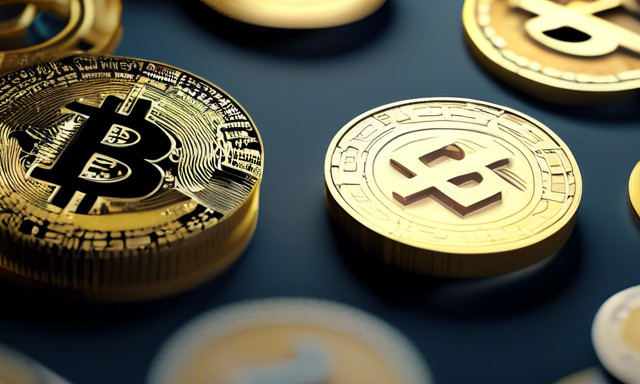Crypto and Scapegoats: A Conversation Over Coffee
You know how sometimes it feels like the world is looking for a scapegoat for its problems? Like when your friend forgets to bring the snacks to movie night, and suddenly it’s all their fault that the popcorn was mediocre? Well, in the world of finance, there’s a lot of finger-pointing going on, particularly toward crypto. I recently came across this article that really got my gears turning about the whole situation, and I thought, what better way to chat about it than over a steaming cup of coffee?
Ripple’s CLO Takes a Stand
So, here’s the scoop. The Chief Legal Officer (CLO) of Ripple, a major player in the cryptocurrency space, has thrown down the gauntlet against U.S. regulators. They’re essentially calling out these regulators for using crypto as a convenient scapegoat during money laundering scandals. You know, like when a kid gets blamed for breaking a vase even though it was the cat?
The CLO, an insightful figure, expressed concern that focusing on cryptocurrencies distracts from more significant issues in the traditional financial system. Can you believe that studies show less than 1% of crypto transactions are tied to illegal activities? Meanwhile, traditional banking systems are responsible for laundering somewhere between $800 billion and $2 trillion every year! That’s mind-boggling, right? It’s like saying, "Hey, let’s ignore the giant elephant in the room and focus on the mouse instead."
The Traditional vs. Crypto Conundrum
It’s fascinating how many high-profile banks, including HSBC and JPMorgan, have been implicated in laundering money for drug cartels and other shady operations. You might’ve heard of this famous scandal where banks were fined millions yet continued practicing these dubious activities. It’s almost like the banks have a "Get Out of Jail Free" card while the crypto crowd is treated like they’re the villains in a bad movie.
Ripple’s CLO isn’t alone in this fight. Other crypto enthusiasts, including lawyer John Deaton, have backed these arguments. They’re saying, “Why is everyone looking at crypto when it’s the bigger, corporate whales that are causing the most damage?”
The Blame Game Intensifies
What’s even more concerning is how U.S. regulators are seemingly tying crypto to broader failures in the banking sector. They went as far as naming this initiative Operation Choke Point 2.0, suggesting that they’re aiming to restrict access to digital assets under the guise of preventing illicit activities. How absurd is that? It’s like saying your love for pizza caused a city-wide health crisis!
Ripple’s CEO, Brad Garlinghouse, had some pointed words during a recent Bloomberg interview. He highlighted that the current regulatory environment has ultimately hurt the growth of the crypto industry in the U.S. It’s like trying to garden in a drought—no matter how hard you work, the odds are stacked against you.
The Bigger Picture: A Call for Balance
What all this boils down to is the need for balance and transparency. While it’s essential to combat money laundering and other illicit activities, it feels like the regulators are casting a shadow over an entire industry that has the potential for innovation and economic growth.
Here are a few key takeaways:
- Less than 1% of crypto transactions are linked to illegal activities.
- Traditional financial systems are managing hundreds of billions in illicit funds.
- Regulators should focus on the actual issues within the banking sector to make a real difference.
It’s a classic case of picking the wrong battle, and the consequences could be far-reaching. Imagine if we applied the same scrutiny and criticism to traditional banks that we do to cryptocurrencies. It could lead to meaningful reforms, right?
A Final Thought
As we sip our coffees, it leads me to ponder: Why is it so tempting for regulatory bodies to vilify new technologies like crypto instead of tackling the root causes of the issues we see? Is it just easier to point fingers at the shiny new toy rather than get their hands dirty with complex regulations and actual accountability?
What do you think? Are cryptocurrencies really the problem, or are they just the latest bogeyman in the financial world? Let’s chat about it!
[Sources used in the article here: John Deaton’s Tweet, HSBC’s Involvement, Bloomberg Interview ]




 By
By
 By
By
 By
By


 By
By